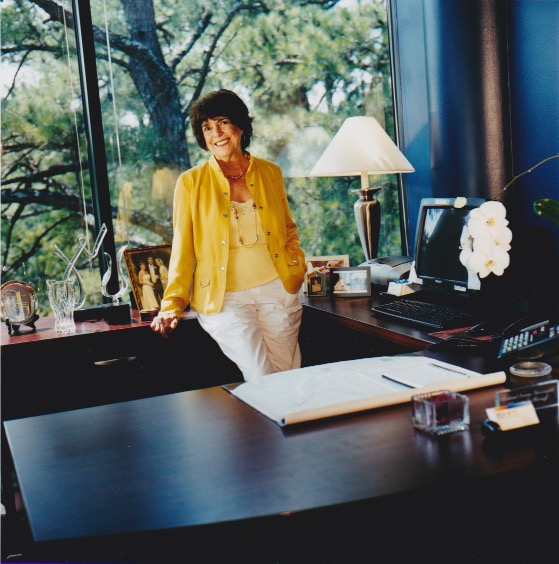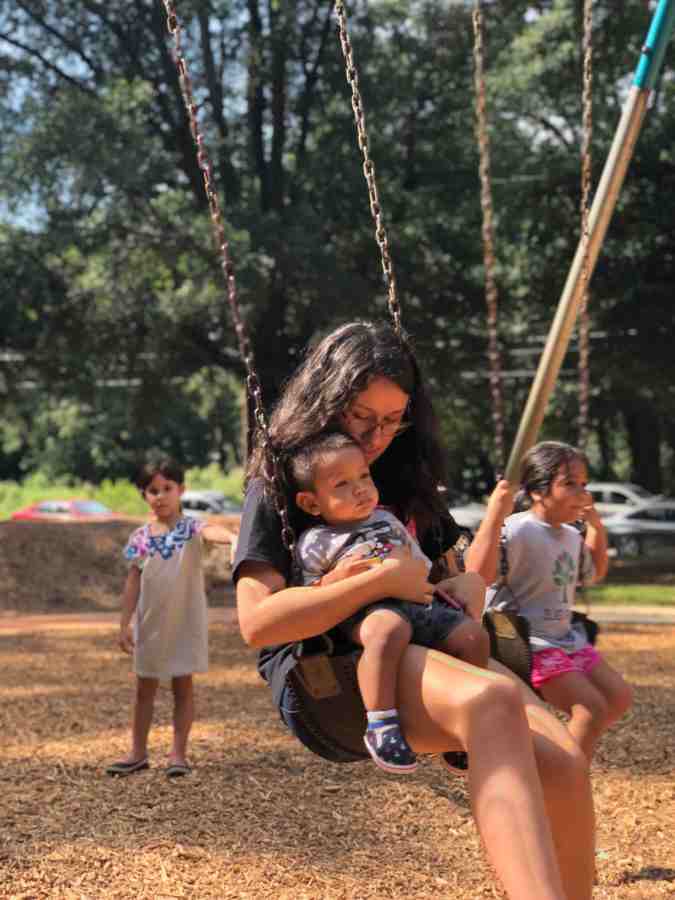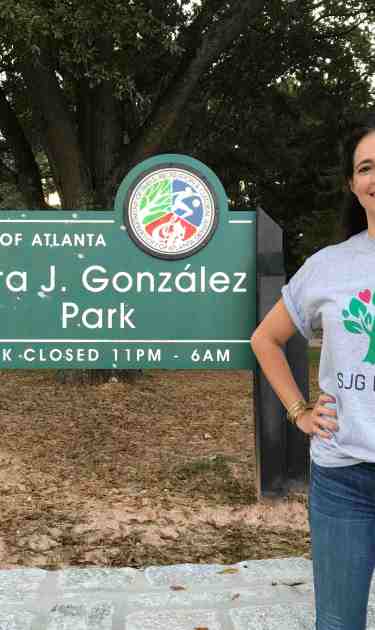With a swing set, slide, and plenty of room to play tag, it might look like any other ordinary park. But in actuality, it’s a tribute to Sara J. González – a Cuban-born woman who inadvertently became a pioneering and leading advocate for Latino, immigrant, and minority rights in Atlanta, Georgia – and the southern state’s only park named after a member of the Latino community.
Ten years after her passing, her daughter, Isabel González Whitaker, honored Sara’s legacy and memory by developing an already-existing park in her namesake. The one-and-a-half-acre park now features the only all-abilities playground in the area and is also the neighborhood’s only wheelchair accessible park. It includes a children’s soccer field, a community plaza, and the only permanent education nook in the area debuting later in the fall.
The entire experience has changed González Whitaker profoundly and has brought her even closer to her mother, who made it her mission to improve the lives of others. The difficult life she led in Cuba shaped González’s values. She gave birth to Isabel’s older brother and sister shortly before the Cuban Revolution, which thrust her family into the spotlight. Her husband had attended school with Castro and radio stations denounced him as a non-sympathizer. The family then became vulnerable to death threats, prompting them to flee to New York.

“My mother found herself in a very difficult marriage, not knowing the language and not having really any resources on how to meaningfully survive,” González Whitaker tells me.
She divorced her first husband and left with her children for Miami. The city was quickly becoming a hub for Cuban exiles, and it’s there she met Isabel’s father and got a second lease on life. “She began to cultivate her own self-education. She obviously learned to speak English. She also was a voracious reader,” González Whitaker says.
Together, González Whitaker’s father, an academic, and her mother left Miami to settle in Atlanta, where the Latino population was virtually non-existent in the late 1970s and early 1980s.
“They opened up a Cuban restaurant because my mother always had a very strong pride for her culture and our food, and she also had this intuitive marketing calling,” González Whitaker adds.
The small Cuban sandwich shop closed after eight years in business. González-Whitaker believes the closure took a toll on her mother who viewed it as a failure on her part. “She realized you can have a great product and certainly the enthusiasm to share it with the world, but if you don’t have tools and resources and know how to read contracts and know how to start a business, it’s really hard to achieve the American dream,” González Whitaker says.
González joined Latin American Association, a small social services organization dedicated to helping immigrants settle in the United States, as a receptionist. There, she began to shine. “She could help families first hand with everything from housing to food to emotional support, and helping provide resources and navigate this new, unknowable world for people that were coming here,” Isabel explains.
“My mother always had a very strong pride for her culture and our food, and she also had this intuitive marketing calling.”
González moved up to executive and grew the nonprofit’s budget by millions of dollars.
Then, the International Olympics Committee recruited her to serve as Director of Hispanic Community Relations, to ensure the inclusion of Latinos in planning and execution of the 1996 Summer Olympics.
She spent the final 12 years of her career serving as president and CEO of the Georgia Hispanic Chamber of Commerce where she advocated for Latino business leaders, entrepreneurs and employees.
González greatly increased membership and transformed the chamber into the largest Hispanic chamber in the Southeast. Her initiatives included GHCC’s annual gala, which became the largest event targeting the Latino market in Georgia, the Hispanic Caucus at the Georgia State Capitol, Hispanic Day at the Capitol, and political candidate forums.
In 2000, González launched the Hispanic Business and Career Expo, followed by the Hispanic American Center for Economic Development (HACED), which functioned as the first business incubator for Latinos in the Southeast.
“She was determined to take the passion she developed when her own business failed to help others see their dreams come true from a business perspective. When she passed, that is what she had been most recognized for,” González Whitaker says.

Rebuilding the park in honor of her mother wasn’t a hard sell for Isabel. The community, investors, and Mayor Keisha Lance Bottoms – who inaugurated the fully redesigned park this month – supported the move. The park – renamed in 2009 – is located in Atlanta’s Westside, in the Buckhead neighborhood where González lived for 30 years until her death in 2008.
In the decade since her death, González’s presence is still felt, especially to her daughter who has adopted her mantra: As a community, immigrants are assets not liabilities.
“She used to say her life was an accidental life. That if Castro had not come into power, she would have had a very different life, and that he set her life on a path that was at times extraordinarily difficult,” González Whitaker says. “But the silver lining was that she was able to cultivate in herself a voice and give voice to the voiceless and that really became her passion.”




